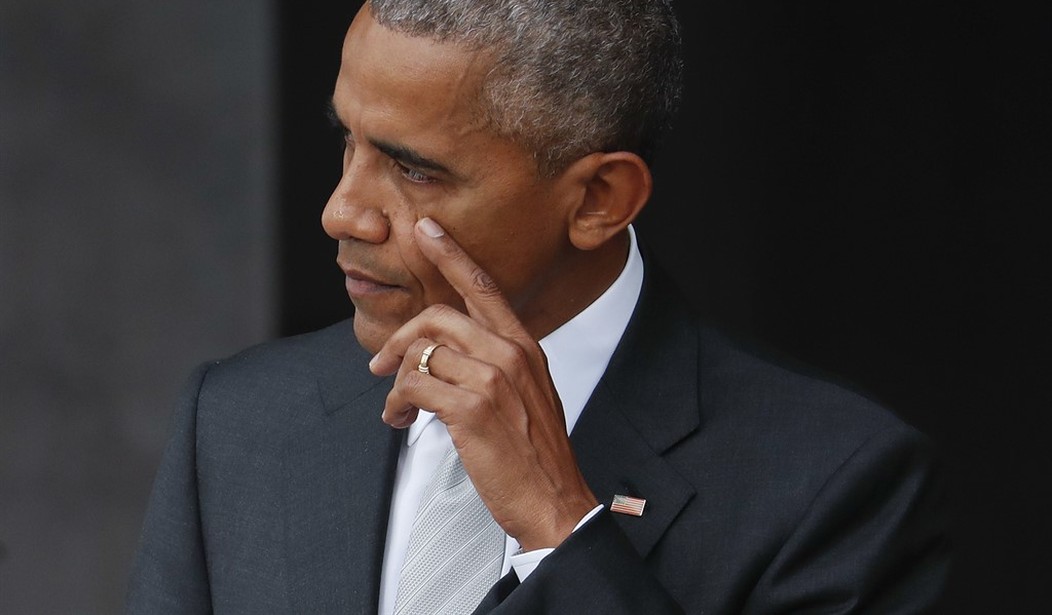Although 200 years separate these two presidents, both are known for their cool, reserved temperaments and constitutional scholarship. Madison was the father of the U.S. Constitution and an avid scholar of ancient and modern governments. Obama was a constitutional law professor before becoming president and often speaks in a professorial style.
As presidents, Madison and Obama led during a time of terrorism and both were accused of being weak executive leaders in the area of national security.
Retired Lt. General Michael K. Flynn, a registered Democrat, pointed out Obama's weak leadership in a July 26, 2016, interview withAmerican Thinker. Flynn cited President Obama's refusal to ignore "99 percent" of his advisors who recommended keeping 10,000 troops in Iraq in 2011 to prevent the rise of radical terrorism. ISIS filled the vacuum, growing exponentially since then.
"He (Obama) did not listen. He made a political decision rather than a decision for our national security. This is a weakness in his leadership style," Flynn said.
When asked byCBSSundayMorninghow President Obama's administration will be viewed 50 years from now, Fox News Channel host Bill O'Reilly answered this way:
"Overseas is a disaster, an absolute disaster and that's going to weigh heavily on his presidency," O'Reilly replied, airing his response onThe O'Reilly Factoron July 5, 2016.
The day after the July 14, 2016, terrorist attacks in Nice, France, Judge Jeanine Pirro, a Fox News host, was asked how President Obama will be remembered in the context of terrorism. She responded passionately.
"Weak! One word: weak. Not connected. . . He doesn't have a plan; he doesn't have a policy. He's frustrating. He should be in academia," Pirro said.
Recommended
President Madison was also considered a weak leader against terrorism during the War of 1812.
For months British Admiral George Cockburn had terrorized, raided, and burned towns in Virginia and Maryland with little opposition from the federal government or trained regular U.S. military. The emboldened Cockburn succeeded in the greatest prize of all, burning the White House and U.S. Capitol on Aug. 24, 1814.
Americans were so angry at Madison that they painted these words on the charred walls of the Capitol: “The capital and the union lost by cowardice.”
Also in graffiti was this declaration: "George Washington founded this city after a seven-year war with England — James Madison lost it after a two-year war.”
Madison's friends reported in the immediate aftermath that the president looked “shaken and woe-bygone. In short, he looked as if his heart was broken.”
How did Madison respond? Did he stay dour and depressed? Or did he replace his cool reserve with decisive strength?
"That violent prejudices were known to exist against the administration, as having failed in its duty to protect it [the city], particularly against me . . ." he wrote, adding. “I could not in candor say that all that ought to have been done had been done and in proper time.”
Rising from the literal and figurative ashes, Madison pledged that his top priority was "leaving my country in a state of peace and prosperity.”
Madison gave General Andrew Jackson a promotion and increased Jackson's military resources, in terms of both men and ammunition. Jackson successfully and decisively defeated the British a few months later in New Orleans on January 8, 1815. Cockburn left the East Coast.
Madison gave his peace commissioners new and more flexible instructions for negotiating a peace treaty with Great Britain.
Madison also fought a political battle ending in a close vote in Congress to keep Washington as the nation's capital city.
For these and other reasons, Madison ended his presidency as a much stronger executive leader, which I bring to life in my new book,The Burning of the White House: James and Dolley Madison in the War of 1812.
A New York Times/CBS poll in December 2015 revealed that Americans are more fearful of a terrorist attack than they have been since the weeks after the terror attacks on Sept. 11, 2001.
After the ISIS-inspired terrorist attacks in San Bernardino, California, and Orlando, Florida, as well as several attacks in France, Brussels, and Germany, Obama has not shown the obvious change in leadership style that Madison showed at the end of his presidency.
Obama has mostly tinkered around the edges. At the suggestion of his advisers, he announced on July 6, 2016, that he would keep 8,400 U.S. troops in Afghanistan instead of 5,500 as he had planned.
With only six months left in his presidency and the next presidential campaign in full force, Obama's legacy is nearly complete.
If recent polls are any indication, he is likely to leave office with most Americans viewing his national security legacy as weak. In a June 2016 Fox News poll, 49% of Americans believed the United States is weaker under President Obama's leadership while 41% disagree.
After the burning of the White House in 1814, James Madison emerged as stronger, more decisive and in-charge leader. After defeating a terrorizing enemy, Madison ended his presidency in 1817 with his nation at peace.
Unless something changes, Barack Obama is poised to leave office in January 2017 under strong criticism for weak leadership against ISIS and the United States’ fiercest enemires. America and the world continue to be tormented by acts of terror.
























Join the conversation as a VIP Member